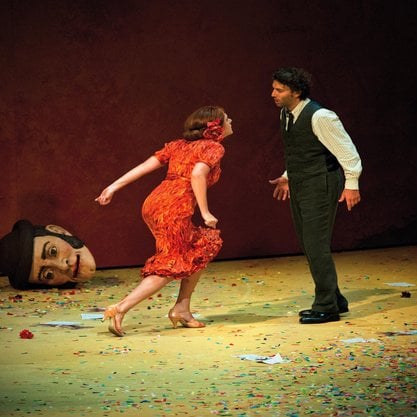Article
Brahm, Otto (1856–1912) By Ifkovits, Kurt
Article
Otto Brahm (Otto Abrahamson) (1856–1912) was a German literary historian, critic, dramaturge, theatre manager and editor. After studying German literature in Berlin, Brahm became an influential theatre critic and proponent of naturalism, championing Ibsen’s works in particular. In 1889 he co-founded the Freie Bühne company in Berlin, as well as a journal of the same name in 1890. Brahm was its editor-in-chief for four years. Freie Bühne was initially conducted as a private theatre society to skirt censorship laws. As its dramaturge, Brahm was involved in many path-breaking productions (e.g., Ibsen’s Ghosts) that would make theatre history and lead to the breakthrough of theatrical naturalism in Germany. Brahm was also an advocate of Gerhart Hauptmann, paving the way for the premieres of Die Weber (The Weavers) and Vor Sonnenaufgang (Before Dawn). In 1894 he took over leadership of the Neues Theater in Berlin, and from 1904 he was at the helm of the Lessing-Theater. His acting ensemble was among the finest in Germany and eventually included the young Max Reinhardt. By banishing pathos from the stage, espousing instead a stark psychological realism, Brahm can be considered—as the critic Alfred Kerr dubbed him—the ‘the true architect of a European stage.’
